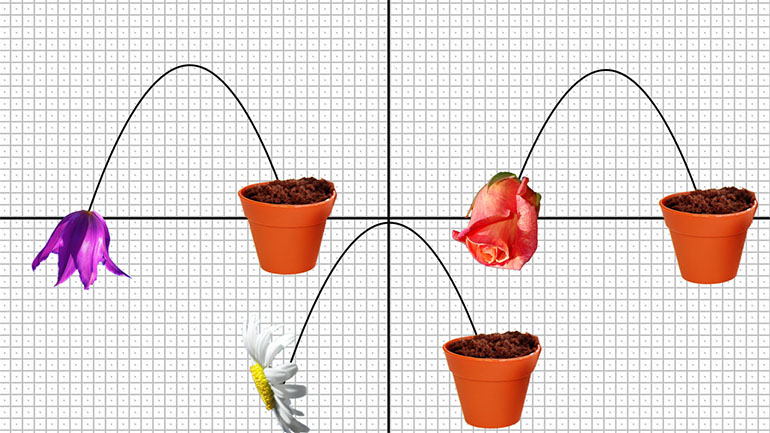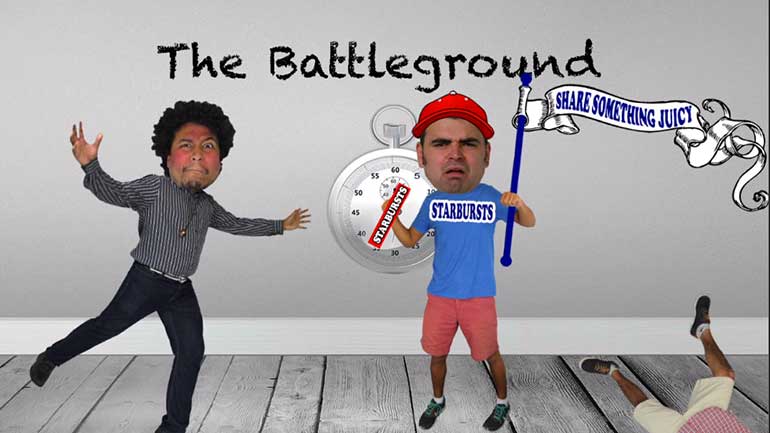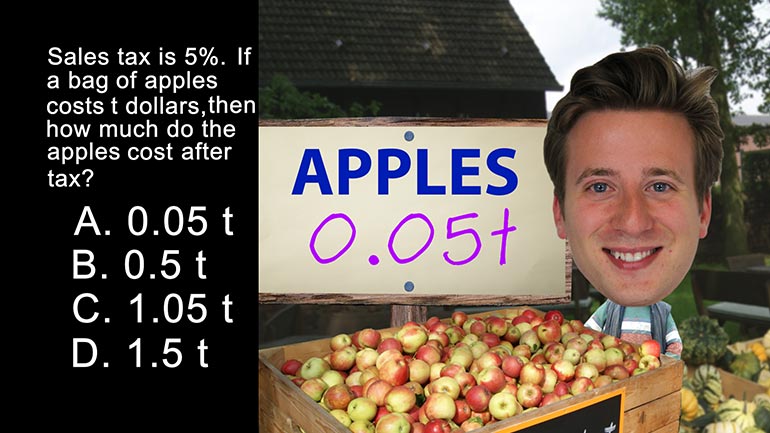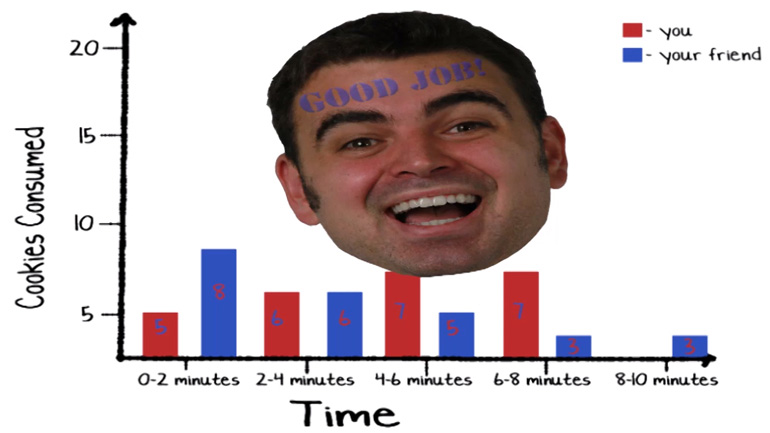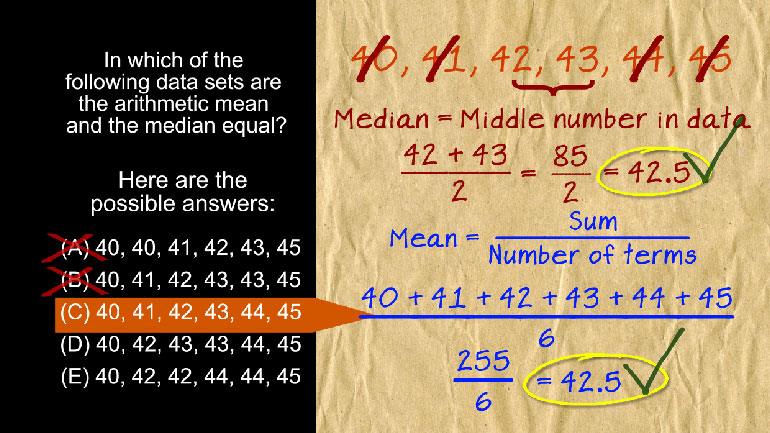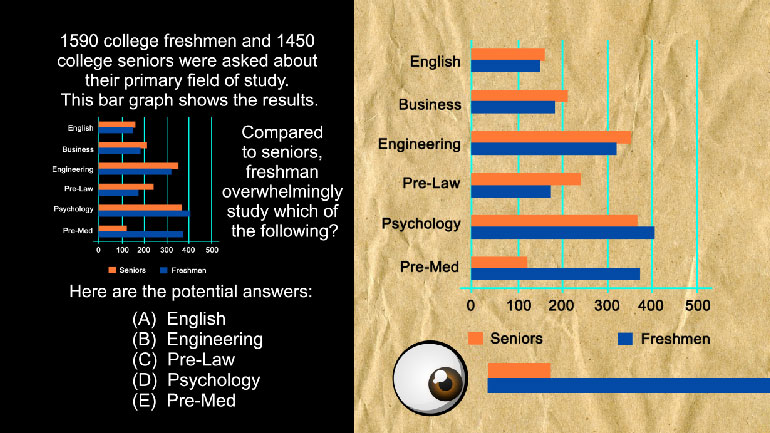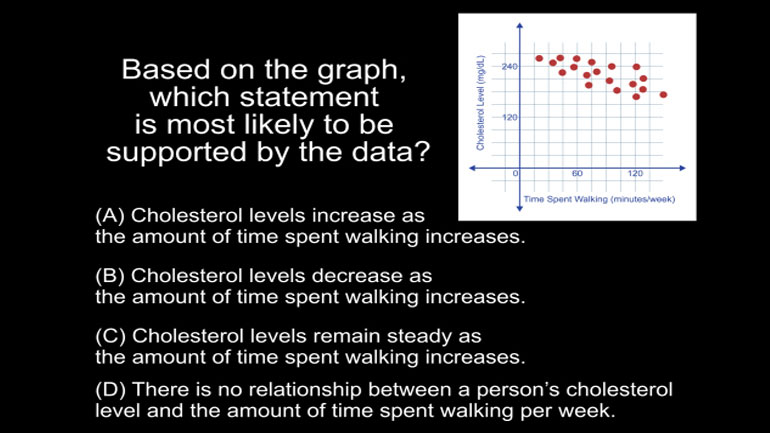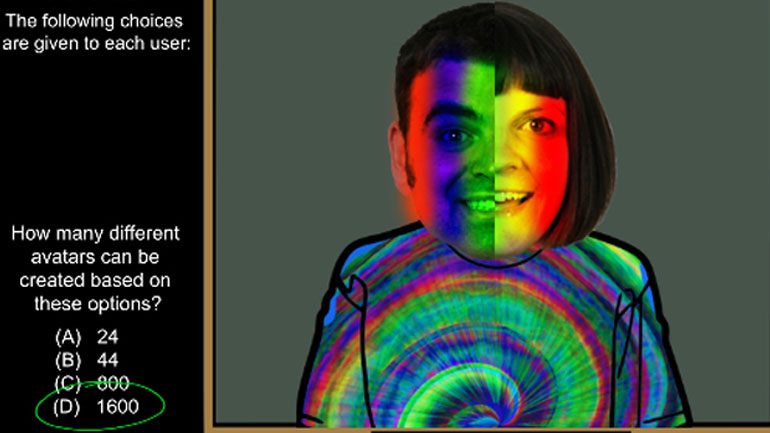ShmoopTube
Where Monty Python meets your 10th grade teacher.
Search Thousands of Shmoop Videos
Math III Videos 103 videos
Approximately 874 people per day wonder what a unit rate is. If you're one of them, check out our video on unit rates and how to use them. (We just...
This video covers how to use cross products to solve for a missing number in a proportion by setting that proportion with a variable over the produ...
GED Math 2.4 Rational Numbers. Lucius's favorite restaurant is how many km from his home?
CAHSEE Math 4.2 Statistics, Data, and Probability II 207 Views
Share It!
Description:
Statistics, Data, and Probability II Drill 4 Problem 2. Based on the graph, which statement is most likely to be supported by the data?
- Statistics and Probability / Summarize, represent, and interpret data on two variables
- Statistics and Probability / Summarize, represent, and interpret data on two variables
- Statistics and Probability / Understand and evaluate random processes underlying statistical experiments
- Statistics and Probability / Make inferences and justify conclusions from sample surveys, experiments, and observational studies
- Statistics and Probability / Summarize, represent, and interpret data on two variables
- Statistics and Probability / Summarize, represent, and interpret data on two variables
- Statistics and Probability / Summarize, represent, and interpret data on two variables
- Statistics and Probability / Understand and evaluate random processes underlying statistical experiments
- Statistics and Probability / Make inferences and justify conclusions
- Statistics, Data Analysis, and Probability 7 / Scatterplots
Transcript
- 00:03
One shmoop or two?
- 00:05
The following graph shows points representing the relationship between the amount of time
- 00:09
spent walking per week and cholesterol levels of various people.
- 00:13
It’s also a pretty good diagram of what the red blood cells look
- 00:16
like in those higher-cholesterol people…
Full Transcript
- 00:18
Based on the graph, which statement is most likely to be supported by the data?
- 00:23
And here are the potential answers...
- 00:32
Can we read a scatter plot? Well, that’s what it's asking anyway.
- 00:37
Let’s go through the potential answers one by one.
- 00:41
So A says “Cholesterol levels increase as the amount of time spent walking increases.”
- 00:47
Well...if A were to be true, the dots would follow this kind of line like from the
- 00:51
origin up and to the right about a 45 degree angle –
- 00:55
yet here, we don’t see that at all… so A is false.
- 00:59
B. “Cholesterol levels decrease as the amount of time spent walking increases.”
- 01:03
Well B is sorta true – yes, they do decrease but not dramatically.
- 01:07
We’re looking for the BEST answer here so let’s keep reading.
- 01:11
C. “Cholesterol levels remain steady as the amount of time spent walking increases.”
- 01:17
Hm – no – they definitely decline – just not all that much. So C is definitely false.
- 01:23
OK… D. “There is no relationship between a person's cholesterol level and the amount
- 01:27
of time spent walking per week.”
- 01:29
D might be true… but it looks like there clearly is a pattern here – just not a dramatic one.
- 01:35
If it was dramatic, the line would look like this…
- 01:37
…and, well, our nation’s sidewalks might be more crowded.
- 01:40
But ok, clearly the BEST answer is B.
- 01:43
As in, “Bypass surgery.”
Related Videos
CAHSEE Math: Algebra and Functions Drill 5, Problem 3. Solve the equation.
Statistics, Data, and Probability I: Drill Set 3, Problem 4. How many different avatars can be created based on the given options?
Statistics, Data, and Probability II Drill 3 Problem 2. Which two sports together make up for the preferences of more than half of all those w...
Statistics, Data, and Probability II Drill 3 Problem 3. One hundred twenty of those who were asked preferred what sport?









































